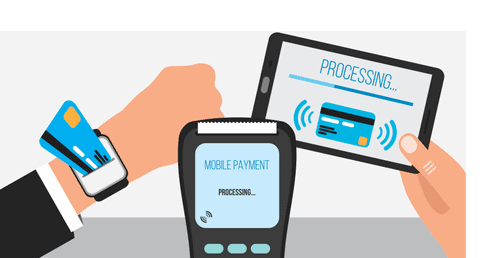Do you know how businesses can accept online payments without dealing with additional or hidden costs? Learning the strategies requires correctly understanding the price and available options.
Before accepting online payments for your business, consider learning which payment methods customers prefer. There are various options, each with a fee or cost.
Are you a new entrepreneur seeking knowledge about how businesses can accept online payments without breaking the rules? Join us as we discuss the process in-depth to improve your understanding. Let’s get started.
Understanding Different Online Payment Methods
Before adopting different online payment methods, consider understanding your options and their fees. Some of them include the following:
Credit and Debit Cards
Famous credit and debit cards for online payment methods are American Express, Mastercard, and Visa. Customers can pay for services with them, but the issuer charges vary, so research before selection.
An online company formation can enjoy much lower fees with debit cards as the payment is less risky. After payment, the funds get transferred instantly from the customer to the merchant account. Meanwhile, the transaction could decline if the balance is insufficient.
Credit cards are financial instruments with a pre-set credit limit issued by banks to facilitate cashless transactions. But there’s a risk of customers not having enough money when the bill is due, and that’s why they come with higher fees.
ACH Transfers
Automated Clearing House (ACH) transfers are affordable and one of the most popular ways to receive online payment in the business world. They charge lower fees compared to debit or credit card companies.
Since businesses can accept online payments, customers must provide their bank information, such as routing and account numbers, to use this method. Lastly, the money moves from the buyers to your company account, usually taking one to two business days.
Mobile and Digital Wallets
The world has gone digital and mobile payments with wallets like Google Pay and Apple Pay are becoming increasingly popular. They allow customers to make purchases with a few clicks directly from their mobile devices and save their payment information, which improves brand reputation.
A company formation online needs to support digital wallets and mobile payments due to their lower fees. Furthermore, they don’t charge additional fees for credit card processing.
Factors to consider before choosing a Payment Service Provider
A payment service provider with a transparent rate structure is one of the crucial factors to consider for online registration companies. Other things to look for include the following:
1. Simple Fees
There are different payment service providers charging varied fees. Some require a certain amount to get started, while most charge per transaction, which could be a flat rate or percentage. Others want you to pay every month while enjoying exclusive services.
Avoid providers that charge different fees, as things might get complicated. Remember that you must pay the cost of the payment method service. Furthermore, consider conducting in-depth research before deciding.
An excellent payment provider charging per transaction won’t have you worried about monthly fees or hidden costs. Businesses can accept online payments, which makes planning much more straightforward.
2. Various Payment Methods
Choose service providers offering multiple payment methods because they allow you to control your fees. You don’t want limitations when trying to reduce cost and have to select from only the most expensive options.
Your ideal service provider should allow you to easily manage and track online payments. Consider selecting one with an excellent infrastructure that saves you the headache of multiple account setups.
3. Easy Setup
Excellent payment service providers make getting started seamless for beginners and expert users. They have a user-friendly interface and can save you the extra money and energy to set everything up without hiring anyone.
After company formation registration, choose a platform with a simple onboarding and signup process, including setup options across all expertise levels. Besides, it should have an easy-to-use dashboard to get you up and running without advanced tech knowledge.
4. Strong Security
A payment service provider should have a highly secure and trustworthy security system to protect customers. Most protect data with high-level encryption or support 3DS2 authentication with multiple safety layers.
Incorporate your business online and choose a payment provider with excellent security features to foster trust between your business and customers. They can trust you with their money without worrying about fraudulent activities. It’ll also save you the compliance requirements hassle, which could be expensive doing it yourself.
The Best Way to Accept Online Payments
Adopting an all-in-one service provider is the best way to accept online payments for your business. It lets you quickly choose a payment method and keeps all your information in one place.
The right payment service provider can improve customer experiences and optimize your business revenue. The more convenient payment processing is on your website, the better your conversion rate.
When analyzing business performance, payment service providers can help. They usually have dashboards allowing you to monitor sales and track every expense, which increases your marketing ROI, transaction, and metric to identify your
strengths.
Key Takeaways
After learning how businesses can accept online payments for free, consider making proactive decisions. You can reduce the processing fees by negotiating rates and setting a minimum purchase requirement.
Businesses can establish a minimum amount for purchases online through specific payment methods, ensuring they don’t affect your profits excessively. Keeping a close eye on your finances is also a great idea to identify cost savings opportunities.
Another excellent way to avoid paying card processing fees is adding a surcharge to debit or credit card transactions. It means that customers pay the price instead of your business, so consider checking your local regulations.








